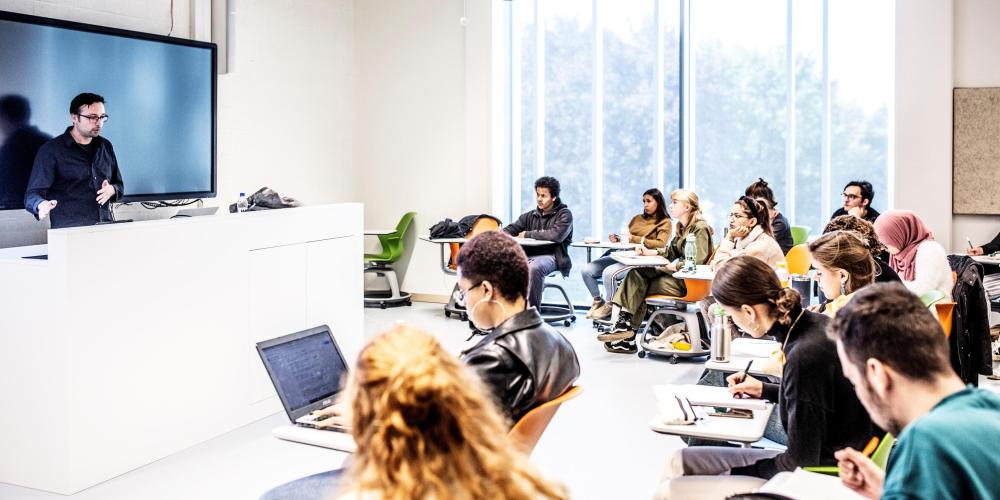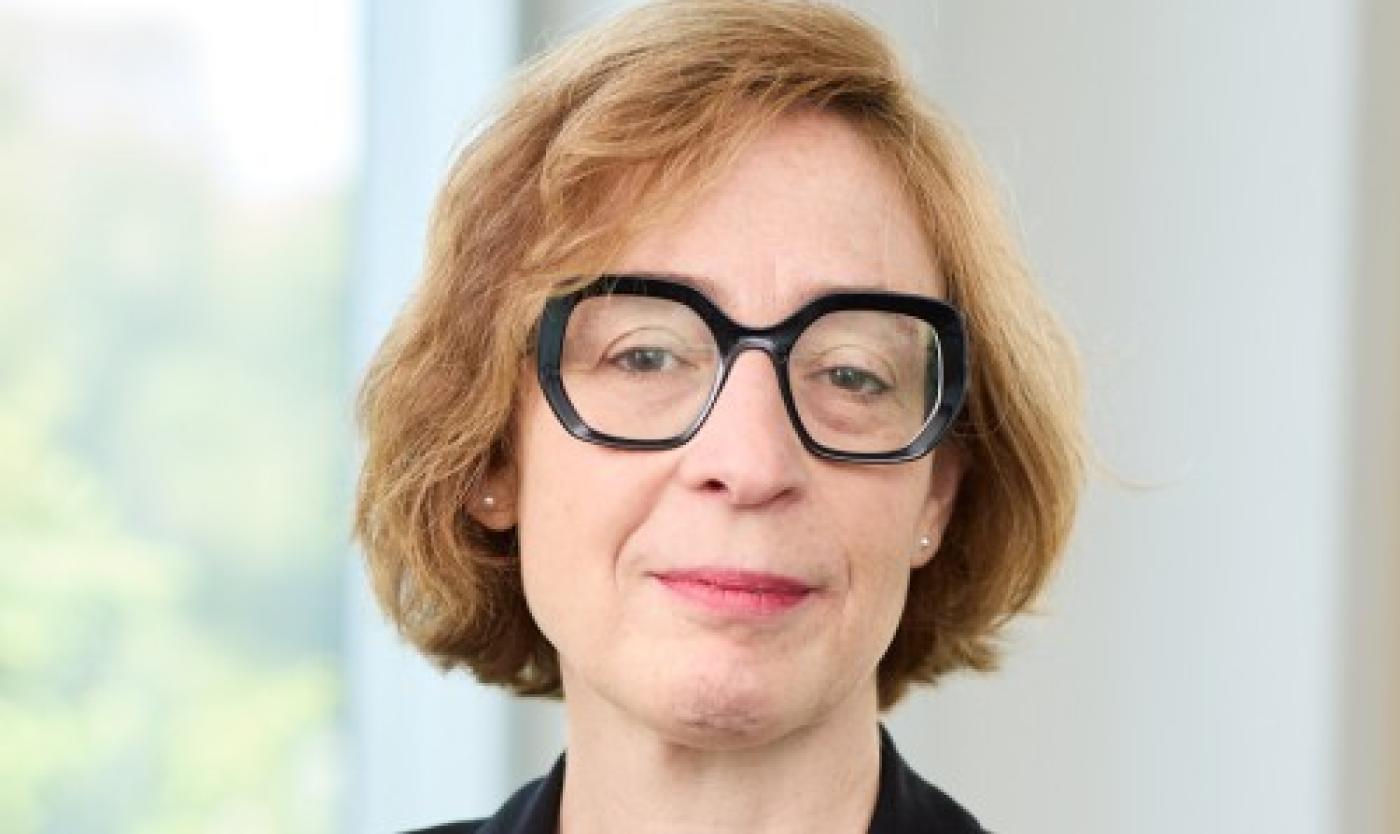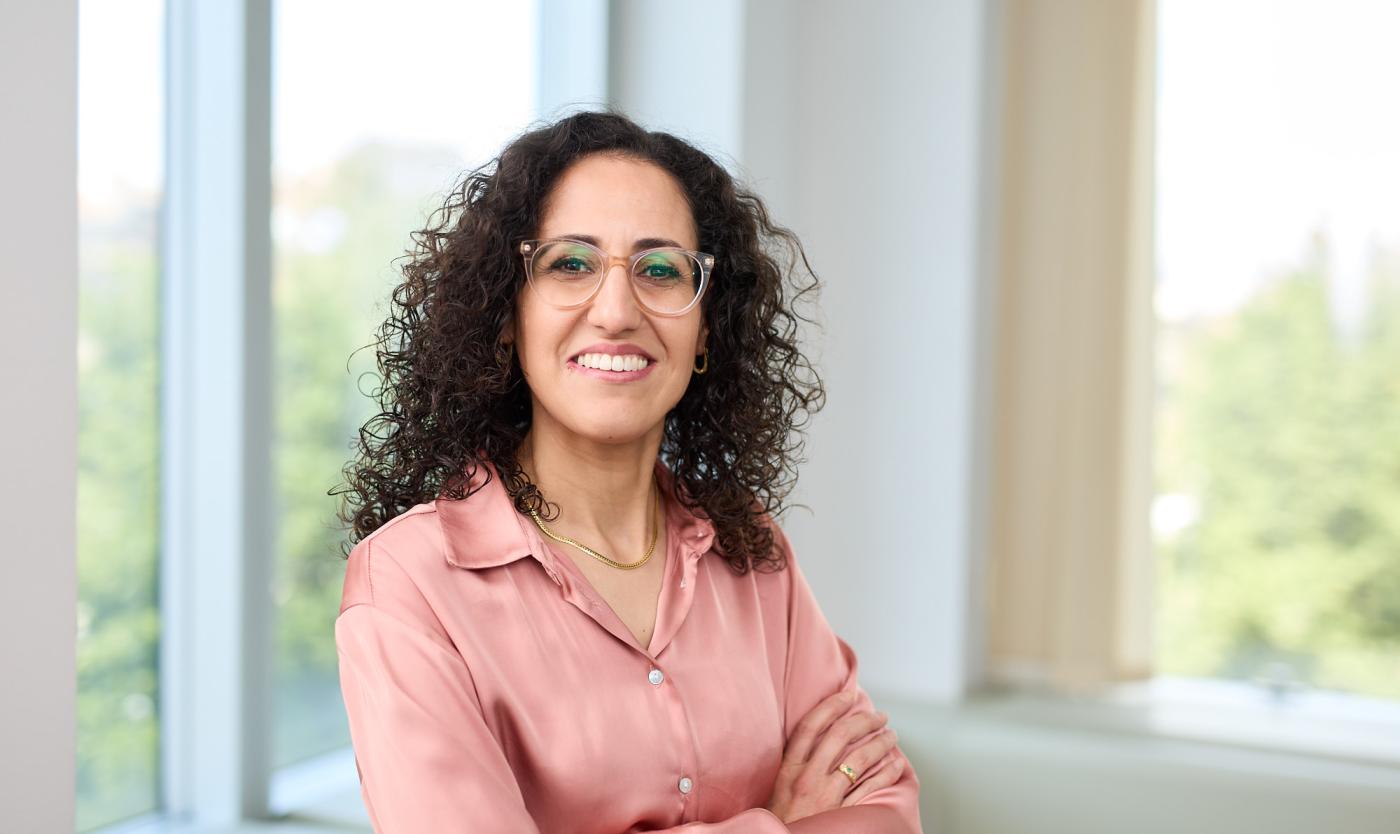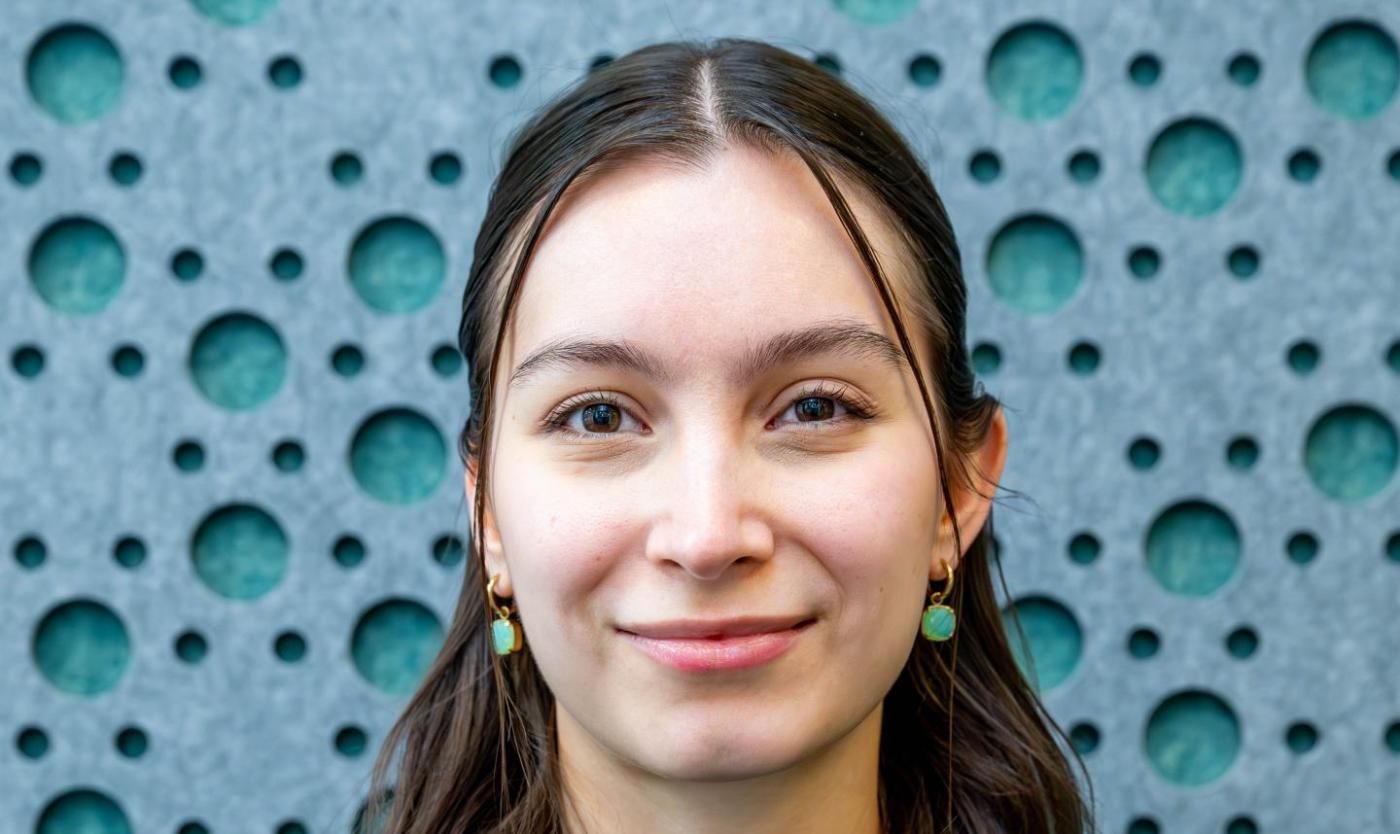
With the launch of a new website, the ENGINE (Tackling the EthNic Gap IN Higher Education) research project offers clear insight into structural inequality in Flemish higher education. The project, led by VUB researchers Ilke Adam and Amal Miri, together with UHasselt doctoral researcher Bengisu Girenizli and KULeuven, maps the ethnic gap and develops concrete solutions. ENGINE is the first large-scale study in Flanders to systematically address this issue. The research is funded by the Research Foundation Flanders.
What is the situation regarding ethnic inclusivity in our higher education system?
Ilke Adam: "There has not yet been any broad Flemish or European research, but various indicators show that we are performing poorly. In Flanders, 50% of young people have a migrant background. Yet only 1 in 7 of them go on to university. Belgium is one of the worst-performing countries in Europe in terms of equal opportunities, both in terms of ethnicity and class. If your parents do not have a higher education degree, you are much less likely to obtain one yourself than the European average. Our neighbouring countries are no champions either, but they are doing better. So it is not down to the individual. The problem is structural."
Amal Miri: "Progression also remains problematic. Students from migrant backgrounds are 50% less likely to pass their first year than other students. Intelligence alone is not enough. Students need an environment in which they can flourish: a school context that feels right, a curriculum that offers recognition and an achievable education system. Many ethnic minority students drop out because these factors are lacking. Research shows that feeling at home at university or college has a positive impact on performance. Discrimination has the opposite effect. Social issues also play a role. I see Muslim women who wear headscarves doubting their future. Why invest in studies if the labour market will not welcome you later on?"

Ilke Adam
Wat are other countries doing better?
Ilke Adam: "It has long been said that early referral to vocational and technical education is one of our pain points. According to international research, it is best to wait longer before doing so, but there is a lot of political resistance to this. Belgium is also lagging behind in terms of policy. A diverse academic staff, at all levels, increases the chances of graduation for students with a migrant background. Students perform better in a welcoming, inclusive climate of diversity."
How did this research come about?
Bengisu Girenizli: "The Black Lives Matter Movement sparked the debate here too. Our higher education system is still based on Eurocentrism. Students who do not feel there is room for their identity do not feel a sense of belonging, and that affects their academic performance. In 2021, student associations such as We Decolonise VUB, of which I was a member at the time, campaigned for the decolonisation of higher education. That laid the foundation for this project.”
Ilke Adam: "Decolonisation is not only about discrimination, but also about recognition. Students of colour feel less at home in white lecture halls, with white professors and curricula that present Europe as the cradle of all knowledge, without acknowledging that colonisation and slavery contributed to that 'superior' position. Our research focuses on progression: how can we prevent ethnic minority students from dropping out and help them flourish? This requires a focus on study guidance, diversity and professionalisation of staff, a broader range of knowledge... There is a lot of work to be done. Never before has there been a large-scale study into the ethnic divide in our higher education system. Universities collect data, but often keep it internal because it is politically sensitive. This research is therefore a first. It is an important step towards exposing the many blind spots."
Who is involved in your research and what role do students play?
Amal Miri: "The project was launched within BIRMM, the VUB interdisciplinary centre of expertise on migration and diversity that brings together all VUB researchers working on this theme. We are collaborating with three academic partners, each of which coordinates one part of the research. Our group, BSoG-VUB, focuses on diversity, equality and inclusion policy in higher education. VUB-MILO is investigating the role of teachers and the curriculum. UHasselt is studying the impact of ethnic minority student associations and KUL is coordinating the longitudinal survey of 1,200 students. Ethnic minority students are not only the subject of this research, but also co-researchers. They participate in our supervisory committee, help write publications and interview guides, and conduct interviews. We have allocated 4,000 hours of student work and a part-time student liaison coordinator to serve as a bridge between students and researchers."

Amal Miri
Bengisu Girenizli: “This co-creative model offers significant added value. Students experience the education system every day. Their experiential knowledge, combined with our academic knowledge, leads to stronger solutions.”
How long will your project run?
Ilke Adam: "The project will run for another three years. The first student survey has been completed and was a success, and we will be surveying the same students again over the next two years. This long duration is important. You cannot measure a student's progress based on their first year alone. In Flanders, we see a lot of first-year students dropping out or changing direction. Thanks to the approval of the ethics committee, we can collect their data and survey them again later."
Amal Miri: "The sense of belonging can also evolve throughout your years of study. A longer duration provides a better insight into how students really feel."
Based on this, you will develop a Close The Gap toolkit. What will it look like?
Ilke Adam: "We will draw up policy reports and instruments to measure the ethnic gap and the impact of policy. My research group is working on a framework for an “ideal” inclusive higher education policy. In addition, we are launching a learning platform with training materials for policymakers, teachers and student organisations. Good practices will also be featured, such as video interviews with policymakers who consider the needs of ethnic-cultural minorities not as an extra but as a matter of course. Such stories can make policymakers think about which initiatives might be appropriate in their context: making the teaching staff more diverse, involving ethnic minority students more closely in diversity policy, quiet spaces, a stronger approach to racist incidents, etc. Our project will end in three years, but the stakeholders involved, including ethnic minority student associations, the Flemish Interuniversity Council, the Council of the Flemish Universities of Applied Sciences and Arts, and numerous Flemish civil society organisations will continue to disseminate the tools.

Bengisu Girenizli
What do you hope to achieve with this research?
Bengisu Girenizli: "I want to strengthen the position of ethnic minority student associations. They make an important contribution to the fight for greater equality in higher education and are crucial to the well-being and success of students. Not only do they offer safer spaces, but they also help find concrete solutions to challenges that students face, such as assistance with scholarships. It is important to recognise and appreciate their knowledge, experience and commitment. This is often underestimated."
Ilke Adam: "Ethnic minority student organisations are sometimes, unjustly, seen as segregation. In reality, they not only offer a sense of home, but also provide knowledge about cultures of origin. The university alone cannot satisfy that intellectual hunger. Bridging the ethnic divide is too ambitious a goal. Racism and discrimination cannot be solved with a single study or a few tools. But we do hope to narrow the gap and contribute to more opportunities, greater well-being and, as a result, better academic results for students."
Amal Miri: "Based on my experience as a lecturer, I want to help change curricula. During my sociology studies, it was only in my third bachelor's year that I discovered the work of Fatima Mernissi, an influential Moroccan sociologist. Through a fellow student, not through a professor. Isn't that distressing? Didactic change is also needed. Traditional lectures, where students just listen, no longer work. Students need to be stimulated. I hope this project will set something in motion."
Ilke Adam: "The attitude of professors, teaching methods and curricula could be more inclusive. Why do medical students only learn about white skin diseases? Even in hairdressing schools, they still only practise on white hair. Providing knowledge from the Global South shows that science is not exclusively Western. That does something about racism and discrimination. It helps not only students of colour, but society as a whole."
This research is funded by FWO.